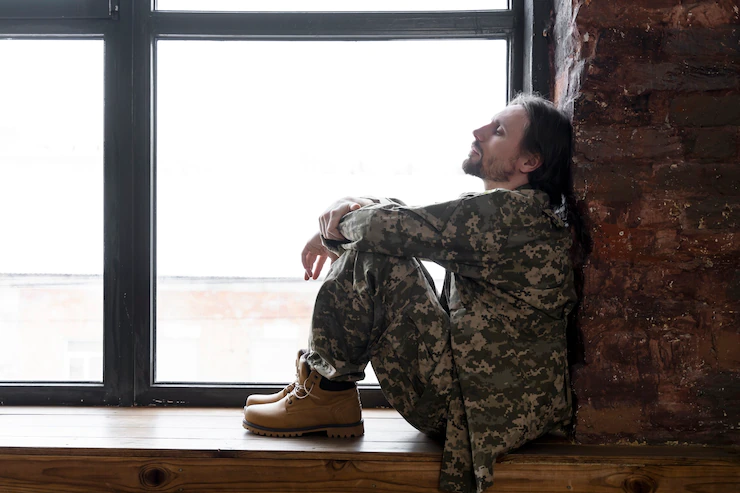As a nation, we owe a debt of gratitude to the brave individuals who have served our country in the armed forces. Many of these veterans have put their lives on the line to defend our freedom and our way of life. Unfortunately, many of them return home with physical and mental health challenges that can make it difficult to transition back to civilian life. With these arising challenges, healthcare for veterans plays a vital role in supporting and providing them with the care and resources they need to live healthy and fulfilling lives.
Understanding SUD in Veterans
A veteran refers to a person who served in their country’s armed forces, usually during war or conflict, and may have been deployed domestically or abroad. While SUD stands for Substance Use Disorder, it refers to a condition in which an individual continues to use drugs or alcohol despite negative consequences.
Military service can be a highly stressful and traumatic experience, sometimes leading to the development of SUD in Veterans. While SUD can affect anyone, it has become a growing concern among Veterans in the United States. Many studies have shown that the prevalence of SUD among veterans is significantly higher than that of the general population. The National Center for PTSD reports that rates of PTSD among the population of military veterans vary based on the era of service but have been estimated to be 10 to 30 percent. SUD can also hinder access to necessary medical and mental health care, exacerbating other health conditions.
Factors contributing to SUD in Veterans
Substance Use Disorder (SUD) is a complex issue with multiple contributing factors. These are:
- Mental health: Veterans who have gone through stressful experiences while serving in the military are more likely to acquire SUD. Anxiety, sadness, PTSD, trauma, and trauma-related stress can all contribute to the emergence of mental health issues.
- Chronic pain: Veterans may suffer from chronic pain from injuries sustained during military service. The pain can lead to the use of prescription painkillers, which can increase the risk of developing SUD.
- Social isolation: They may experience isolation, leading to loneliness and depression. Substance use can be a way to cope with these feelings.
- Access to drugs and alcohol: Veterans may have easier access to drugs and alcohol due to their military training and experiences
Role of Healthcare for Veterans
Serving in the military is both challenging and rewarding. Unfortunately, not everyone can have a good life after their military service. Veterans need access to resources and support services to help them manage their new life’s challenges and thrive after their service. Many agencies provide programs and services to them to cater to their primary concerns in physical and mental health. The Department of Veterans Affairs (VA) provides a wide range of healthcare benefits, education and training programs, employment assistance, and other support services to help veterans transition back to civilian life.
Veterans’ healthcare benefits offer a wide range of medical services to eligible U.S. military veterans, including:
- Preventive care: This includes regular check-ups, health screenings, and vaccinations to prevent illnesses before they occur.
- Primary care: Comprehensive primary care services, such as treatment for chronic conditions, management of acute illnesses, and medication management.
- Mental health care: Various mental health services, including counseling, therapy, and treatment for mental health disorders such as depression, anxiety, and PTSD.
- Specialty care: Medical care for conditions like cancer, heart disease, and diabetes. There are also specialized services such as physical, occupational, and speech therapy.
- Long-term care: This is for veterans who require ongoing medical assistance, including nursing home care, hospice care, and palliative care.
One of the needed care for the SUD veterans is the treatment of their addiction. Recovery from addiction will help them restore their dignity and give them a quality life again. But not everyone can get treatment; there are different factors affecting their decision to seek help.
Common Barriers to Accessing SUD Treatment
There are several common barriers to accessing substance use disorder (SUD) treatment, including limited availability of treatment facilities, lack of insurance coverage, the stigma associated with addiction, the fear of legal consequences or losing custody of children, and practical concerns, such as childcare or transportation.
What are the Efforts Made to Help Veterans?
To overcome these barriers, some agencies made efforts to increase the availability and accessibility of treatment options such as telehealth and online resources. Education and awareness campaigns also help lessen stigma and increase understanding of addiction as a treatable medical condition. Public policies can also be implemented to reduce legal and social barriers that discourage individuals from seeking help. Finally, providing support and resources to help individuals navigate the healthcare system and address practical concerns, such as childcare or transportation, can help ensure that those in need can access the care they need.
Importance of early intervention for SUD treatment in Veterans
Early intervention is crucial for effectively treating substance use disorders (SUDs) in veterans. Early detection and treatment make them less likely to develop more severe or co-occurring mental health disorders. It also increases the likelihood of successful treatment outcomes and reduces healthcare costs associated with SUDs. Additionally, early intervention can enhance the overall well-being of veterans by improving their physical health, mental health, and social functioning. It can improve the quality of their life and increase their ability to participate in daily activities. Veterans struggling with substance abuse should seek help as soon as possible to get the support they need to overcome their SUDs.
It is never too late for anyone who wants to recover from their addiction.
Get the Right Support for Veterans
It is important to remember that seeking help for SUD is not a sign of weakness or shame. It takes courage to recognize the need for help and to take the first step toward recovery.
For veterans or active-duty military members, you may seek substance-use disorder (SUD) treatment with California Recovery Center in partnership with the Triwest Healthcare Alliance. Access to healthcare treatment, specifically for SUD, is now viable.
California Recovery Center is a reputable treatment facility that offers evidence-based addiction recovery approaches, including detox, therapy, and ongoing support. Recovery is possible and achievable with the right support and treatment. If you have any further questions or concerns, feel free to reach out to our admission team, or you may contact (866) 864-1986 for more information.




